Themes for bachelor projects
The bachelor's project, abbreviated as BAP, is an important part of a bachelor's degree program in which the bachelor's student demonstrates his creative research skills. It is the challenge and also the unique opportunity to focus on the subject area for an academic year and to delve into a theme that stimulates the student's curiosity and is relevant to professional practice.
BAP within the SRW course wants to make a concrete and useful contribution to a current and practice-relevant problem (a need, need or question) for children, young people & welfare. With the BAP the student demonstrates that he or she can provide an answer to a practical problem relatively autonomously.
The bachelor project course is the integrative final part of two learning paths: the investigative learning path and the creativity learning path.
Within the course there are 4 possible directions for a bachelor's project (BAP).A BAP can be controlled by:
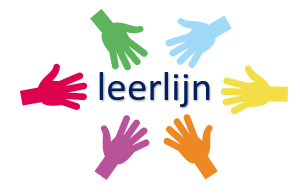
The subject contents and colleagues of the learning track, with a view to VODO (and incorporating practical research/illustrations from the professional field into lessons).

UCLL's expertise centers, with a view to collaboration within research. We consciously only choose collaborations that fit within SRW identity.
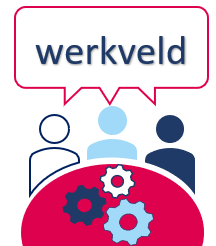
Questions from the field, with a view to service provision. This type of BAPS can be broad or directive, and take place in the relevant field of work.
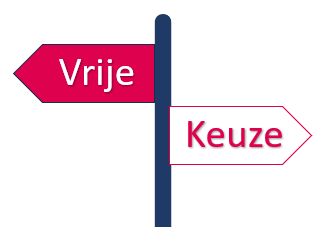
A proposal from BAP supervisors and/or students, also known as free BAPs. Here too, relating to SRW identity and learning paths is self-evident. This type of BAPS requires an additional commitment and degree of self-management.
BAPs 2023-2024
For the 2023-2024 academic year, the following themes were selected in discussions between the learning paths, the expertise centers and people from the field:
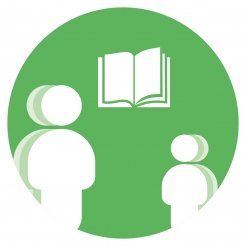
Social pedagogical
Participation in the BZJ

Would you like to get started with a game about participation in a special youth care living group? A game (to map participation) was developed from the practice-oriented research (PWO) "Patient participation... patients as partners in care, partners in crime" and translated into special youth care. Here the emphasis is on ownership of the young person. As a BAP student you will help develop the existing game and tailor it to special youth care. You will then focus on participation at your internship (and possibly at another location) within the BZJ and, together with young people and supervisors, you will look at how this can be given concrete shape by playing the game together. The carefully collected research data will be included in further research.
You will work under the wings of your BAP supervisor and Lies Beunens, who is connected to the project as a researcher at the Resilient people research center.
Required: student does an internship in BJZ
Knowing more?
contact person: lies.beunens@ucll.be
Vote in divorce

Voice of kids
The bachelor's thesis is part of the practice-oriented scientific research (PWO) The Voice of Kids: strengthening the voice of the child in divorce and parenting mediation.
Two out of three divorces in Flanders involve children. It is an event that has an enormous impact on the lives of the children, but in which the children are rarely involved in making decisions. While children's rights point to speaking to children and informing them in a good way, there is currently no regulation or substantiated practice for involving minors in alternative approaches to disputes such as mediation. A family mediator can act as a neutral third party when divorcing parents are looking for solutions and need to make agreements regarding their children. However, the voices of children are not sufficiently included in mediation. By definition, this means that a large group of children will not be heard.
The Voice of Kids wants to develop a substantiated support package in collaboration with children and young people (of divorced parents) and professionals, so that children are directly involved in mediation and the mediator enters into discussions with them. This goal arises from the desire of children and young people to at least be offered to be heard/speak in a mediation.
The bachelor's thesis linked to this project can have the following focus: raising awareness of children and young people; arts-based research with children and young people; the role of a JAC, Tejo, Mental Health Care, youth work, Growing up in reaching and supporting children of divorced parents; sensitization of professionals (e.g. CLB); analysis of in-depth interviews with young people and focus groups with professionals; sensitization of parents.
In collaboration with the Resilient People Expertise Center and the researchers of The Voice of Kids
BAP can be conducted separately from the internship location.
Target group is young people from 10 to 25 years old. (no childcare and toddlers)
Required: student does an internship at an internship location with children/young people between 10 and 25 years old.
Knowing more?
contact person: gaelle.hendrickx@ucll.be
Fathers raising young children

How do fathers of young children get more involved in their upbringing?
Maternity leave: take it!
Fathers are less addressed in parenting, many materials are aimed at mothers. For example, we notice that maternity leave is taken less by fathers. Certainly important because since this year you are entitled to not 15, but 20 days of maternity leave.
Research shows that taking maternity leave is crucial to build a close bond with the baby and support the recently delivered partner. Maternity leave has a positive impact on the well-being of both parents and the child, both in the short and long term.
However, there is still a lot of taboo surrounding maternity leave and the involvement of fathers/co-parents in the family. For example, before the expansion, 10-20% of fathers did not take their maternity leave or took it incompletely. There are still various barriers, such as a negative attitude of the employer or environment, high workload, financial reasons and a lack of information.
The aim of this bachelor's thesis is to increase awareness about involving fathers of young children (e.g. increasing maternity leave). The needs and experiences of expectant and early dads/co-parents are researched and creatively translated into an awareness campaign, so that these parents have a voice among the general public.
Required: student is interning at a placement with infants, toddlers, or preschoolers
Knowing more?
Interesting links:
- Bart Somers on LinkedIn: 1 in 4 fathers does not know that he is entitled to maternity leave or… 'Gender equality within families is good for everyone' — Background — Sociaal.Net https://vaderzoektvakantie.nl/
contact person: sarah.vanhaeken@ucll.be
Children's rights worldwide

On the Unicef website we read: 'The Convention on the Rights of the Child is the first international text that explicitly recognizes children as rights holders.' The treaty describes 54 rights of/for children. 196 countries have ratified this, including Sri Lanka, Uganda and South Africa. But do the children know their rights? Are these sufficiently monitored by their educators and community?
Koen Van Mechelen designed a wooden giant figure, the Cosmogolem, which is placed in the community to keep the dialogue around children's rights alive. This year, as SRW, we support the introduction of the Cosmogolem in Sri Lanka. In collaboration with the ViaVia in Entebbe (Uganda), there will be one in Uganda. Maybe there could also be one in South Africa?
Students investigate how children's rights education can be worked on through the Cosmogolem. They take the materials that the students of the previous academic year designed in this context with them to test.
Requirement: The student is an exchange student from Sri Lanka, Uganda and South Africa.
Knowing more?
contact person: an.beghin@ucll.be
Street Smart Learn

The Mobile School Leuven is working on a platform with educational programs to support and strengthen the youth workers who take to the streets with the mobile schools in their work. They do this with innovative digital tools and educational material, adapted to the context of the street. You can already take a look at: https://www.street-smart.be/.
At SRW we are working with the teaching team on a 'UCLL-proved label'. We look at the modules with a critical eye, make suggestions for additions and report gaps. If the modules 'pass' for us, they will receive a label: with the approval of UCLL/SRW. The next step is to develop additional modules and programs yourself. With your BAP you can help us with this: take a critical look at what a JP needs to get started on the street with the mobile school, supplement it, develop it further.
Requirement: Student demonstrates willingness and expertise in creativity.
Knowing more?
contact person: Rob Sweldens via an.beghin@ucll.be
Teacher-student relationships

In previous research, researchers developed materials to help teachers establish quality relationships with students. Now they are looking for support to make this material more accessible and usable. From theory to practice: the further development of existing materials with various musical resources (richness in case studies and form) for primary education. You will have to respond to feedback from teachers and students in the educational bachelor's degree in primary education (e.g. material must be tailored to the primary school context (much existing material focuses on toddlers), e.g. situated within the Flemish school context (students can more difficult to move in Dutch and English-language videos)).
This project is in collaboration with KULeuven through Jantine Spilt.
Requirement: Student completes an internship in a primary school and demonstrates a willingness and expertise in creativity.
Knowing more?
contact person: liedewij.borremans@kuleuven.be
Participatory working as an organization

Participatory work as an organization, how do you do that?
Children and young people have the right to participate. They have the right to be heard when it comes to matters that affect their lives. Their opinion counts. Children and young people must be given sufficient information to achieve this, otherwise it will be difficult to form an opinion.
The right to participation is strongly related to the interests of the child. Without taking into account the opinions and wishes of children, it is difficult to actually make decisions in his or her best interests. Participation is, in addition to a right, also an important objective in youth care. It means that children and young people can participate in and help make decisions about youth care.
Many organizations that work with children and young people want to work in a participatory way. This is possible when the organization responds to this and creates conditions. But how do you actually do that as an organization? Together we map out how participatory your organization currently is and where there are concrete growth opportunities for participation.
Required: Operation works directly with children or youth.
Knowing more?
contact person: eva.brattinga@ucll.be
Supporting parenting, how do you do that?

Although parents in Flanders experience the upbringing of their child as largely positive, a third also indicate that parenthood is more difficult than expected. This is evident from the family survey of the Department of Welfare, Public Health and Family.
The survey shows that many parents experience the same difficulties, according to the Growing Up Agency: on the one hand in being consistent and setting boundaries, on the other hand in correctly answering and supporting the questions and needs of their children.
Parents are usually the primary educators. When you work with children and young people as a youth professional or organization, you naturally also work with parents. Various elements can put pressure on parents in their parenting:
- To what extent and when do parents experience the youth professionals and organization as supportive in their parenting? In which aspects of their parenthood do they feel recognized? What does the transition age (12-25 years) do to parenthood? How do parents experience parenthood with children of transition age? And how can we, as youth professionals and organizations, be supportive in this parenting process?
Knowing more?
contact person: Eva.Brattinga@ucll.be
Requirement: to be able to contact parents of the target group chosen through the internship.
- How does a diagnosis, disability or assistance program affect parenting? How do parents experience their parenthood when their child is being guided? And is there a tension between how youth professionals and parents view this diagnosis, disability or care program? And how can we, as youth professionals and organizations, be supportive in this parenting process?
Knowing more?
contact person: Barbara.verbeek@uclll.be
Requirement: to be able to contact parents of the target group chosen through the internship.
What can the everyday nature of education mean for us as youth professionals?

Just imagine what dish you were served as a child when there was a party, whether and how you went on a trip, what happened just before going to sleep.
Many educationalists argue that raising children takes place in everyday life. Parenting is not something that educators do 'extra' with their children 'after' or on top of 'feeding'. Educators are of course constantly "busy" with educating: in their daily speech and actions they show their children who they are, who they want to be for children, what world they stand for, what values and standards they want to pass on. From the perspective of orthopedagogy, it is clear that the everyday remains important, even in more challenging educational situations. Living together (eating together, playing together, celebrating together) contains the power of education, and possibly also the strength of the SRWer!
With this practical research we would like to gain insight into what we do when we educate in everyday life. From there we want to look together at what this means for us as youth professionals.
- What are relevant/meaningful objects, moments, traditions, rituals and places for children and their parents in everyday parenting, both in the family (and/or in the living group), at school, in leisure time? How do organizations and institutions create space for everyday parenting? How does eating, sleeping, celebrating, etc. for children and young people take shape within the organization? Here too, specific attention is paid to habits, rituals and traditions and the impact of changing educators. How is everyday parenting shown in the media? Instagram and other social media accounts about parenting are springing up like mushrooms. What do they show us about everyday parenting? What comes into view and what remains outside? And what does this tell us about the way education is viewed in our contemporary society?
Knowing more?
contact person: eva.brattinga@ucll.be
Free choice

From an internship OR yourself as a student
Criteria for the proposal:
- Pedagogical approach regarding education and educational relationship Can be linked to practice as a youth professional (employment and profile) Clearly formulated practical problem Practice setting willing to cooperate Can be linked to the training (could be included in a specific course)
Expected engagement by student:
- Submit preparation: basic sources and short sketch to Eva.Brattinga@ucll.be In consultation with the professional field (state contact details)
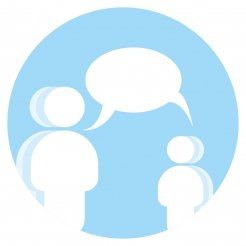
Communication
BABO: reaching the target group within the education and care landscape

Within UCLL's Resilient Reople expertise center we developed an approach to the prevention and care of domestic violence. 1 in 4 children comes into contact with one or more forms of violence in the family, due to arguments, divorce, partner violence, excessive punishment, powerlessness of the parents... This leaves its mark on every child, even if they just witness. In young children (3-8 years old) we regularly miss the signals of domestic violence. Often because we don't know how to talk to young children about this theme and because young children have little language to express what is going on inside them. In 2020, UCLL released the Babo box, a methodology to discuss violence in the family with young children (see www.ucll.babo). The box is aimed at professionals in care and education. The signals we receive from both sectors about the use of the Babo box are very positive. We wish to further distribute the Babo box in the Flemish care and education landscape. Welcome to contribute to this through your BAP!
Research questions:
- How can the Babo box be distributed in the educational landscape? How can the Babo box be distributed in the healthcare landscape? Through which partners is the best way to promote the Babo box for education? Through which partners is the Babo box best communicated within emergency services?
Practical context:
Preschool and primary education (regular and special education)
Assistance for young families
Requirement: student is doing an internship in education or care
Knowing more?
contact person: anneleen.roelandts@ucll.be
Group dynamics in our living group?

Group dynamics…nice!! But also equally useful for our target group?
Group dynamics theory mainly arose from research within task groups of profit organizations. Can we seamlessly transfer findings from such contexts to guiding our groups of children and young people in education, youth care and leisure? And how does the individuality of each of our target groups color the applicability of group dynamics?
- Which action theories lie behind the unconscious/conscious actions of youth professionals in guiding their group? Can they connect this theory of action with a group dynamics theory? How tailored to their target group and operation do they experience this theory? Which theory about group dynamics do youth professionals experience as correct and useful? However, which theory do they experience as not tailored to their target group and operation? Where do they experience a need for research to arrive at more useful group dynamic frameworks?
Goal: to make theories about group dynamics more applicable to the practice of every youth professional.
Requirement: student does an internship in a living group
Knowing more?
contact person: joris.piot@ucll.be
Accessible communication in CLBs

Vrij CLB Brabant Oost wants to reach all students and parents. Information about their operation must be clear, accessible and barrier-lowering for all target groups. They want to test their current communication materials and channels with their target groups. They can use your help for this!
- Which channel reaches which target groups? Do they have other suggestions of their own? How can they best be reached? Which channel do they experience as the most efficient for which type of information? When is the content of the message clear to them? What form of information appeals to them? What content do they want to find on the website and which via social media?...
To find out these things, ask (vulnerable) parents and students through discussions in focus groups. You prepare this interview (also practically), conduct it and process the data in such a way that conclusions can guide their communication policy.
You get to work creatively with the suggestions and insights you have obtained from the conversations. For example, during the conversation you may notice that the content of certain folders, letters, etc. is not so clear and you rework this content so that it becomes more accessible. Or you create a few posts or reels for Instagram in their corporate identity on a subject that appeals to the target group. Or you create a reminder for employees with points of attention for accessible communication. Or …
Required: working in education or working with vulnerable target groups
Knowing more?
contact person: els.dejonghe@vrijclbbro.be
Free choice

From an internship OR yourself as a student
Criteria for the proposal:
- Pedagogical approach regarding education and educational relationship Can be linked to practice as a youth professional (employment and profile) Clearly formulated practical problem Practice setting willing to cooperate Can be linked to the training (could be included in a specific course)
Expected engagement by student:
- Submit preparation: basic sources and short sketch to Eva.Brattinga@ucll.be In consultation with the professional field (state contact details)
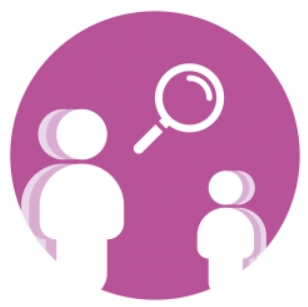
Investigative ability
ABR effect measurement in special youth care

Organizations for special youth care recognize the importance of 'measuring'. They would like to know to what extent their interventions are “effective” and to what extent objectives are achieved. This can partly be captured in figures, but these often do not fully cover the load. There is an additional need and interest in a creative, artificial approach in addition to these figures, with attention to substantive facts, context and mechanisms throughout a guidance process.
In this research we look for how effects in organizations within special youth care can be measured in a creative way. The voice of young people, families and professionals in this sector is crucial in this effect measurement and will be mapped using arts-based methods (e.g. photovoice, image, music, poetry, etc.).
een project ism resilient people
Requirement: student is doing an internship in a special youth care organization.
Knowing more?
contact person: evi.verdonck@ucll.be
Free choice

From an internship OR yourself as a student
Criteria for the proposal:
- Pedagogical approach regarding education and educational relationship Can be linked to practice as a youth professional (employment and profile) Clearly formulated practical problem Practice setting willing to cooperate Can be linked to the training (could be included in a specific course)
Expected engagement by student:
- Submit preparation: basic sources and short sketch to Eva.Brattinga@ucll.be In consultation with the professional field (state contact details)

Social inclusion & diversity
Parenting support for families in migration

How do you offer family support to families with a migration background in an inclusive way (can you reconcile their educational vision with the values and norms in this society?)
(Source: Families after migration, Dirk Geldof, 2022)
Requirement: target group is present in the student's internship context
Knowing more?
contact person: femke.swalus@ucll.be
Making school inclusive

Making school inclusive
- How can racism be discussed among students in an educational context (primary school) and what tools can educational staff use to combat exclusion based on skin color? (Racism, stop the pain, Naima Charkaoui, 2022) How can inclusive, gender-sensitive education within a school context support young people in their gender development? (Source: Toolkit gender in secondary education from vzw RosaS.)
Requirement: student is doing an internship in education.
Knowing more?
contact person: femke.swalus@ucll.be
NBMV

Unaccompanied Minor Refugees:
- Context-oriented guidance from UMs; how can one work context-oriented with unaccompanied minors, where there is often a large physical distance between the young person and his/her context? How to prepare for coming of age when there is no sustainable solution yet.
Requirement: student works with unaccompanied minor refugees during his/her internship.
Knowing more?
contact person: femke.swalus@ucll.be
Gaps (knowledge, strength, feeling,..) between a JP and education system

How do you map the gaps and which tools can help bridge them?
Participation and inclusion: How do you map the gaps between care providers and clients/client systems and which tools are helpful in bridging these?
Knowing more?
contact person: femke.swalus@ucll.be
Free choice

From an internship OR yourself as a student
Criteria for the proposal:
- Pedagogical approach regarding education and educational relationship Can be linked to practice as a youth professional (employment and profile) Clearly formulated practical problem Practice setting willing to cooperate Can be linked to the training (could be included in a specific course)
Expected engagement by student:
- Submit preparation: basic sources and short sketch to Eva.Brattinga@ucll.be In consultation with the professional field (state contact details)
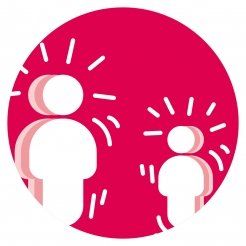
Professional practice
Binding

As a training course, we want to gain insight into the interpretation of the concept of 'connecting' in the professional field with a non-obvious, but very current target group (e.g. non-Dutch speaking parents, underprivileged parents, refugees, etc.).
The basic source for this research project (based on our estimate) is: Baart, A. (2004). A theory of presence. The Hague: Boom Lemma publishers.
In the project, a choice can also be made for sub-elements, e.g. multi-sided partiality, empathy... in that case there are certainly other interesting sources
- Rogers, C. R. (1989). Becoming human. Utrecht: Bijleveld.Savenije, A., van Lawick, MJ, Reijmers, ETM (eds) .(2014). Handbook of systems therapy. Amsterdam: Boom.
Knowing more?
contact person: mies.vandenkieboom@ucll.be and inge.bijnens@ucll.be
Substantiated: you allow your actions to be guided by reflection

As a training course, we want to gain insight into how the professional field intentionally works with reflection. We explicitly emphasize the attitude: the reflex to consider factors at micro, meso and macro levels that influence one's own professional behavior. During this project we want to investigate how the attitude element 'is substantiated; you are guided by reflection' (window and mirror) receives explicit attention in the professional field. We also want to investigate what suggestions we can formulate to stimulate the attitude from our training and which good practices from the field can be inspiring for the SRW training.
We notice, among other things, that:
- students are inclined to focus strongly on reflection at the micro level (looking in the mirror) and would like to see how we can get the professional field on board in looking at meso and macro factors at all parties involved (looking through the window) students in their trajectory BP in the field is not always well supported/stimulated in this regard. The theme is also alive in the various learning paths of our training
The target group within this research can be very diverse. Students may be grouped by sector; VAPH, BJZ…
The basic sources for this research are:
- Geenen, MJ (2017); Learning from your experiences as a social professional. Bussum: Bussum publishers.Hoonhout, M., Van Luijk, D. & Duijnker, A. (2020). Professional reflection: converting work experiences into better actions. Amsterdam: Boom Publishers.
Knowing more?
contact person: mies.vandenkieboom@ucll.be and inge.bijnens@ucll.be
Substantiated: you are guided in your actions by the methodical-agogical cycle

As a training course, we want to obtain illustrations of the application of methodological-agogical work and facilities that reflect a widely differing vision (educere-educare). To this end, we want to investigate how 'goal setting' as part of the methodological-agogical cycle takes concrete shape in function of the vision of the organization (educere-educare). This project is aimed at young people within special youth care facilities.
The basic sources for this research are: basic text educere-educare SRW training, vision texts for facilities, in-depth knowledge of institutional pedagogy, action-oriented work (cf. COS1)
Requirement: the student is doing an internship within special youth care
Knowing more?
contact person: mies.vandenkieboom@ucll.be and inge.bijnens@ucll.be
Integrity: you strive to do the right thing (normative professionalism)

As a course, we want to clarify the concept of normative professionalism for our students. We want to do this by collecting issues regarding normative professionalism, e.g.
- ethical dilemmas the existence of or the need for protocols which values and standards determine an organization and how is this determined (by whom or what are certain choices made? Is this by the vision, head of department, board of directors,... and on basis of what?) how the gray zone (discretionary space) is dealt with in an organization
The research project is aimed at the field of work of SRWers. The sector is further specified.
The basic sources for this research are:
- Van Dalen, W. (2021). Ethics the basis. Moral competencies and normative professionalism. Groningen: Noordhoff. Masschelein, J. (2018). The lightness of raising children. Leuven: Lannoocampus.Wevers, C. (2018). Can I do something about that? Bussum: Coutinho publishers. De Brabander, R. (2019). Change minds. Bussum: Coutinho publishers. https://www.boom.nl/hoger-onderwijs/onderwijs-en-opvoeding/100-7595_Kritisch-denken-over-goed-en-bad
Knowing more?
contact person: mies.vandenkieboom@ucll.be and inge.bijnens@ucll.be
Free choice

From an internship OR yourself as a student
Criteria for the proposal:
- Pedagogical approach regarding education and educational relationship Can be linked to practice as a youth professional (employment and profile) Clearly formulated practical problem Practice setting willing to cooperate Can be linked to the training (could be included in a specific course)
Expected engagement by student:
- Submit preparation: basic sources and short sketch to Eva.Brattinga@ucll.be In consultation with the professional field (state contact details)
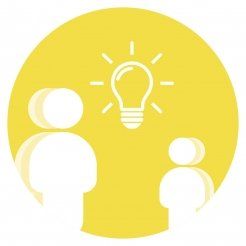
Creativity
Resistance among young people/supervisors of creative processes.

Research question: How does a JP overcome resistance from supervisors and children/young people to creative processes?
Requirement for student: willingness to take a creative approach.
Knowing more?
contact person: ilse.nassen@ucll.be
Music in accompaniment

Research question: How can the music (or other art form) that young people like to hear become an element in the daily guidance of young people by the JP?
Requirement for student: willingness to take a creative approach.
Knowing more?
contact person: ilse.nassen@ucll.be
Free choice

From an internship OR yourself as a student
Criteria for the proposal:
- Pedagogical approach regarding education and educational relationship Can be linked to practice as a youth professional (employment and profile) Clearly formulated practical problem Practice setting willing to cooperate Can be linked to the training (could be included in a specific course)
Expected engagement by student:
- Submit preparation: basic sources and short sketch to Eva.Brattinga@ucll.be In consultation with the professional field (state contact details)
contact us
Would you like to know more about an existing theme (from the curriculum or an existing project/collaboration)? Do you have a proposal that you would like to test? Don't hesitate and contact us using the form below!




